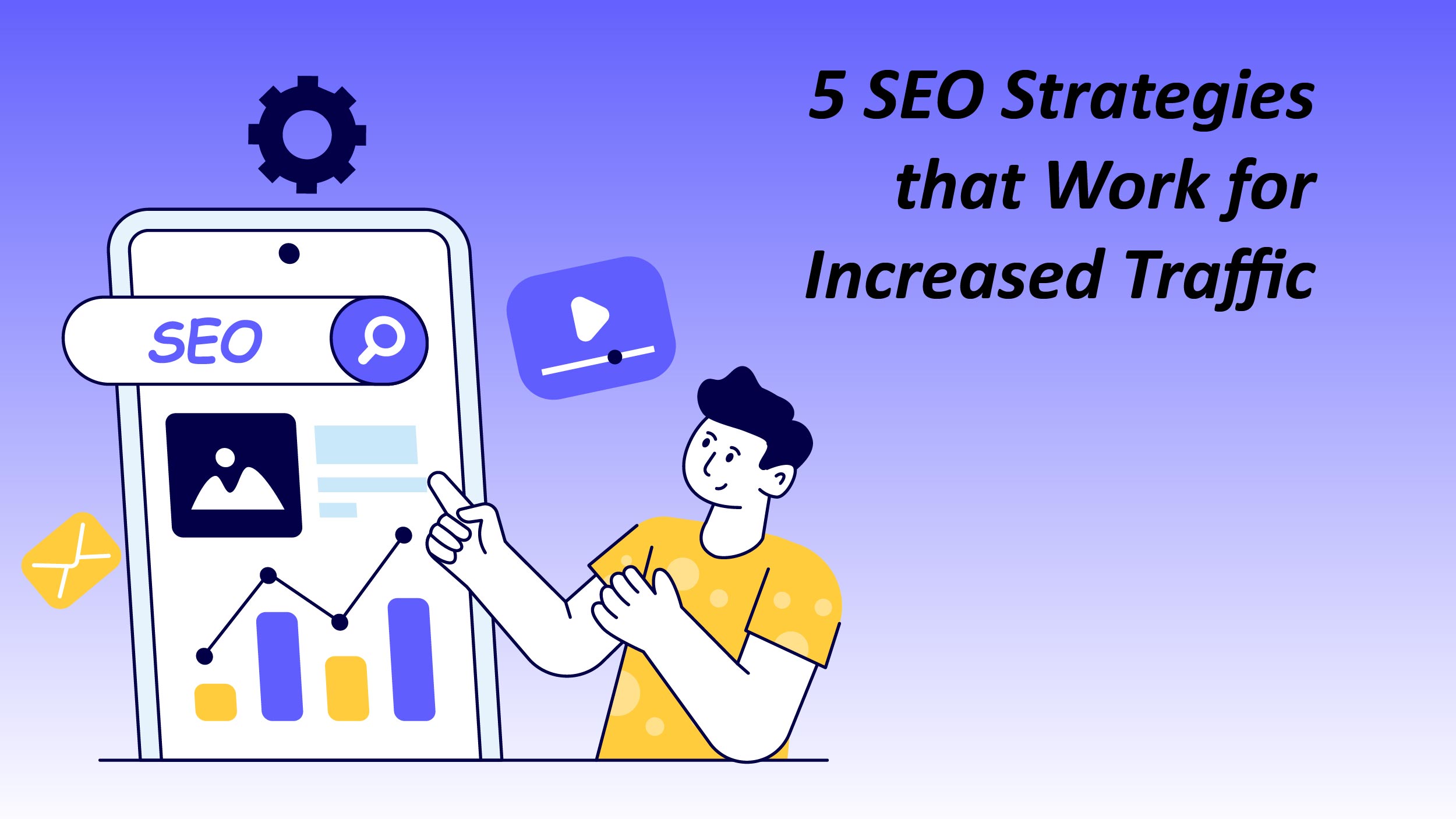Is SEO dead? The answer is a big NO.
This is probably the most asked question almost since its beginning. Marketers now and then anticipate the fall of search engine optimization (SEO), only to realize it’s not happening anytime soon.
This blog explains why is SEO still relevant and why it will continue to do so.
What is SEO?
SEO refers to a set of techniques used to boost the ranking and visibility of a website or web page. This improves exposure and position on search engine result pages (SERP). The process involves enhancing website content, optimizing HTML and CSS, and constructing backlinks to raise the website’s authority.
Search engine optimization assists in building trust and credibility by assuring users that the content is relevant and reliable.
Studies state that Google dominates search engines with 92% search volume. That is the volume of people searching for information related to the keywords for which you provide services.
SEO Rumor Vs Reality
With marketers speculating and spreading the infectious fear, “Is search engine optimization dead?” it becomes increasingly important to find the root cause of this rumor. The majority of it is based on irrational assumptions and false speculation. But the truth is, SEO is very much alive. Marketers should understand its transitional nature and adapt to be successful.
Search engine optimization strategies must change to reflect the way search engines like Google are updating their algorithms.
SEO is Alive and Evolving
 Search engine optimization will stay till search engines do. Google is constantly evolving with the advent of new technologies, but this doesn’t mean SEO is moving towards its last leap.
Search engine optimization will stay till search engines do. Google is constantly evolving with the advent of new technologies, but this doesn’t mean SEO is moving towards its last leap.
Instead old and outdated SEO practices will die. Think of it, are you still playing the same game you enjoyed as a child? You evolve and find new games, right?
Similarly, search engine optimization also evolves pushing marketers to adopt new strategies.
Most people are too busy to update their websites with the latest algorithms and make the necessary adjustments.
They are lazy.
This is excellent news for you
Keeping up with Google’s latest modifications and making the necessary adjustments will allow you to improve your SEO while your competitors lose ground.
If you keep publishing quality, relevant, and user-specific content; over time your traffic and ranking will improve.
Impact of AI on SEO
Search engines can now comprehend user intent and context considerably better because of AI-powered algorithms. This means creating content that truly answers user queries while emphasizing quality, relevance, and value rather than just inserting keywords.
Does SEO Have a Future?
Below are reasons why search engine optimization has a bright future:
User Experience (UX) is the Main Focus
User experience (UX) will be crucial to SEO in 2024. Websites designed to provide a smooth, interesting user experience will score better. This translates to quick loading speeds, responsiveness to mobile devices, user-friendly navigation, and excellent content that draws in and holds the attention of visitors.
Voice search is the new way of Searching
Voice search is now a reality rather than a concept for the future. Digital assistant use is growing, so voice search optimization is essential. This means focusing on question-based content, natural language, and local SEO, particularly for companies that serve particular demographics.
Visual Search: An Emerging Field
Another area that is becoming popular is visual search. Users can conduct image-based searches on websites like Pinterest and Google Lens. This means that firms can increase visibility by optimizing photos with alt tags, meaningful file names, and high-resolution visuals.
Content Continues to Rule
Even with all the advances in technology, content is still the foundation of SEO. Content in 2024 needs to be credible, researched, and provide readers with genuine value. This includes producing skillfully written, educational, and unique content that establishes an authority in your niche industry.
5 SEO Strategies that Work for Increased Traffic
 Below listed are the top five strategies that are still working to improve traffic and revenue.
Below listed are the top five strategies that are still working to improve traffic and revenue.
Creating Exceptional Website Content
Writing excellent content for your website is the best approach to increasing your search engine optimization ranking.
Google loves original, comprehensive, and updated content. More significantly, so does your audience. This suggests that creating amazing content involves giving your readers a ton of value rather than just writing. So how can you write amazing content for websites?
Research is the foundation of good content. You have to identify the problems and topics your readers are interested in reading about.
Once you are aware of it, you may begin to compile a list of content pillars.
Use these SEO writing guidelines while you create your content:
- Make it easy to skim
- Produce long-form valuable content
- Declutter and don’t include more than 2-3 lines in a paragraph
- Use H1, H2, and H3 appropriately
- Use pointers if possible
- Add visual elements
- Include relevant statistics and link to valid sources
- Incorporate data and infographics
Avoid keyword stuffing and include it naturally throughout the document.
Prioritizing Subject Research Above Keyword Research
The most important component of any search engine optimization plan is keyword research.
When done properly, it has the potential to drive thousands of people to your website. However, if you do it incorrectly, you might give up.
Selecting a broad range of terms is one of the most common mistakes I notice in keyword research. This is because of the complete obsession with the search volumes of specific keywords.
This results in producing different types of topics that might confuse your audience.
Remember, Google prefers EEAT content (Experience, Expertise, Authority, and Trust).
What are the best practices for EEAT?
- Create content for the audience and not the search engine
- Produce high-quality content
- Display author credentials
- Backlinks from authority sites to build trust
- Ensure a positive user experience
- Keep your website and content updated regularly
- Avoid misleading, clickbait, and spammy content
Keeping Your Content Up To Date And Reusing It
Most people write something, publish it, and then forget about it forever.
After your content has been ranked for a time, Google begins to rank the more current content of your competitors and gradually pushes yours to the bottom of the SERPs.
Before you realize it, all of your traffic has disappeared.
While producing original material is beneficial, it also takes time. Making evergreen content should be your aim, and you should keep updating it as necessary.
This is how you develop a scalable content plan that gradually raises website traffic and enhances search engine optimization.
Also Read: Video SEO: Everything You Need to Know to Rank Your Videos in 2024
Running SEO Audits Regularly
Seen a drop in traffic? If you’ve noticed a decline in your website traffic, it’s essential to regularly conduct SEO audits, ideally every 3 months.
Why Do Regular Audits Matter?
As your website expands and you publish more content, SEO issues can arise, often going unnoticed until your traffic suddenly drops. To safeguard against these issues, it’s crucial to consistently run audits on your website. This proactive approach helps identify and address any issues before they impact your search engine rankings.
Work Google-Friendly and User-Friendly Website
Your website should prioritize the user experience above all else.
Ensure that your website:
- loads fast
- Is mobile responsive?
- Maintains good core web vitals and is easy to navigate.
- Exhibits excellent on-page SEO
Research indicates that 47% of users won’t wait more than 3 seconds for a website to load. Losing this chunk of traffic due to slow loading times can significantly impact your online presence.
Use tools like Google PageSpeed Insights to achieve an optimal Google PageSpeed score. Additionally, focus on enhancing your on-page search engine optimization, as it plays a crucial role in search engine rankings.
Don’t Underestimate On-Page Seo
Many underestimate the importance of on-page SEO. Avoid falling into this trap and invest time in perfecting your on-page optimization.
Improving your on-page search engine optimization can yield significant improvements in your search engine rankings, so dedicate the necessary effort to get it right.
Use tools like Google Analytics, Ahrefs, Answerthepublic, Screamingfrog, and so on to do it.
Will SEO Exist in 10 Years?
Social media and search engines will probably converge, therefore SEO will be around for a very long time. With an average of more than 1.5 billion searches each day, Facebook has already started to do this, and Twitter has partnered with Google to do the same.
Is SEO a Dying Industry?
No, SEO is not dying. It is a continuously evolving industry and will continue to do so. Marketers and writers have to understand the strategies that work for search engine optimization and adapt according to success.
The Bottom Line
Search engine optimization is not going to fade away and if you want to improve your rankings, consider the points discussed in this article. More importantly, stop creating high quantity poor backlinking content with over-optimized keywords.
When you are searching for something you need answers, right? Use this simple rule and continue producing high-quality user-related content because SEO is not dead.


Comments are closed.